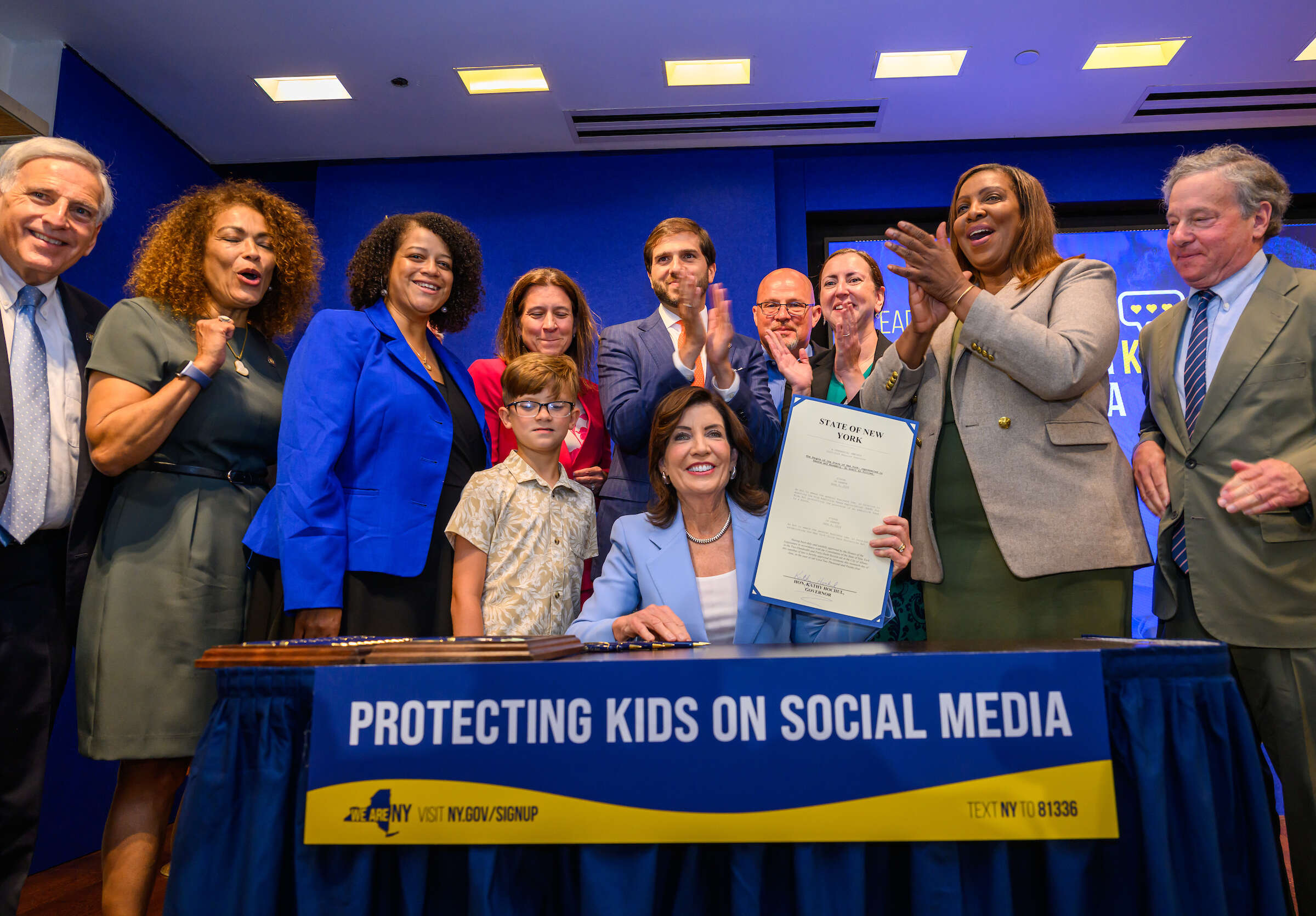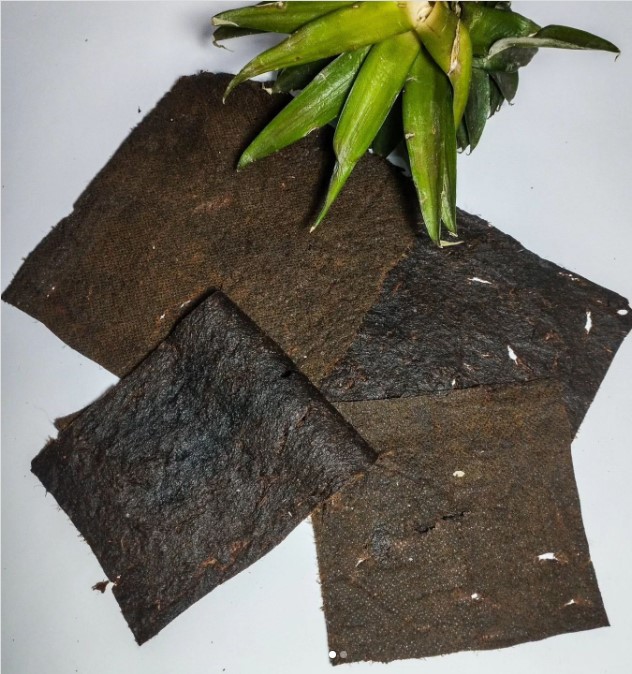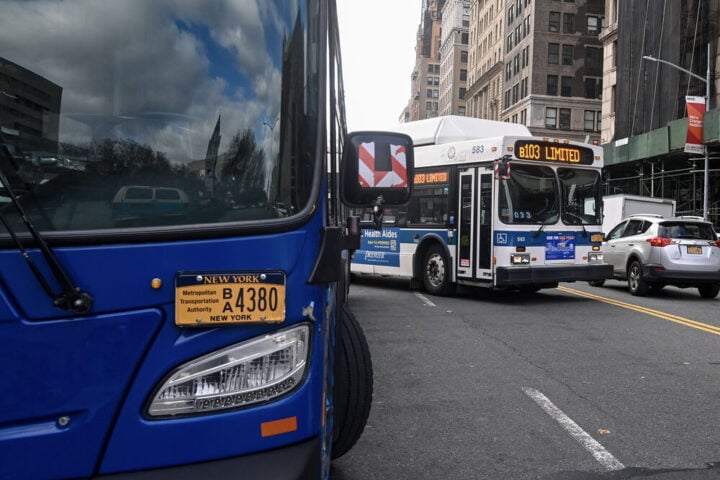Since Thursday, New York has established the strictest protections in the country to safeguard minors from social media. Governor Kathy Hochul signed two laws aimed at mitigating the impact of these platforms on the mental health of children and adolescents by regulating how tech companies offer addictive features to children and how they collect and use minors’ data.
The first law, named Stop Advertising Feeds Exploiting Children’s Addiction (SAFE), requires social media platforms to default to chronological content for users under 18. The second, New York’s Child Data Protection Act, prevents websites from collecting or sharing personal data of those under 18 without their consent. These legislations will prevent social media platforms from providing addictive features to children without parental consent and prohibit them from collecting, using, or selling personal data of children and adolescents without consent.
Simultaneously, while these regulations were being signed, Mayor Eric Adams and Dr. Ashwin Vasan, Commissioner of the New York City Department of Health and Mental Hygiene (DOHMH), announced the release of the “Special Report on Social Media and Mental Health,” a data report reaffirming how anxiety and depression are associated with the use and abuse of these addictive technologies in poorer neighborhoods’ students in the Big Apple.
A survey completed by 22,484 parents, guardians, or other caregivers of children or adolescents aged 5 to 17 residing in New York City highlights that 40% of teenagers report using social media. Teenagers living in very high-poverty areas report using social media more than their counterparts in wealthier neighborhoods. Children attending public schools are more likely to use social media than their peers in private schools. Parents of teenagers in the Big Apple who use social media are more likely to report that their child has been diagnosed with anxiety (27%) or depression (14%).
Similar Posts
“Young people across the nation are facing a mental health crisis fueled by addictive social media feeds – and New York is leading the way with a new model for addressing the crisis and protecting our kids,” New York Governor Kathy Hochul said. She urged Congress to take similar actions, emphasizing the need for federal legislation to establish barriers on how tech platforms operate for teenagers and children. This legislation is backed by various parent organizations, representatives, and the New York Attorney General, Letitia James, who added, “Addictive feeds are getting our kids hooked on social media and hurting their mental health, and families are counting on us to help address this crisis. The legislation signed by Governor Hochul today will make New York the national leader in addressing the youth mental health crisis and an example for other states to follow.”
Opponents of the bill, including the tech industry, argue that the legislation is likely unconstitutional because it violates children’s rights protected by the First Amendment and raises other issues about how social media can operate practically beyond state borders. A spokesperson for Meta highlighted the company’s objections to some aspects of the laws but also welcomed “we welcome New York becoming the first state to pass legislation recognizing the responsibility of app stores.”
James P. Steyer, Founder and CEO of Common Sense Media who are also working to spread awareness about the effects of the effects of social media on kids, said, “When the state’s most powerful leaders join forces to prioritize the well-being of kids and families over Big Tech’s profits, amazing things can happen.” Growing awareness of the need to protect mental health, especially among young people, is also behind other similar initiatives.
For example, New York City sued several social networks for “fueling the youth mental health crisis,” arguing that tech companies intentionally manipulate and addict young people. The lawsuit, endorsed by the New York City Department of Education and the New York City Health and Hospitals Corporation, claimed that these companies cause undesirable and ultimately harmful effects on personality development and healthy social interactions. “Governor Hochul, Attorney General James, Senator Gounrdes and Assemblywoman Rozic deserve all New Yorkers’ gratitude for fighting for these groundbreaking bills and for enacting them into law. We’re proud to have contributed to this victory and excited to see these bills set a precedent for other states, and Congress, when it comes to ensuring kids’ online safety,” James concluded.
















![Google satellite view of 1112 Stanley road in Augusta [Google Earth]](https://www.karmactive.com/wp-content/uploads/2025/04/Augusta-National-Spent-200M-on-270-Acres-but-One-338000-Home-Still-Stands-on-Stanley-Road-720x360.png)
